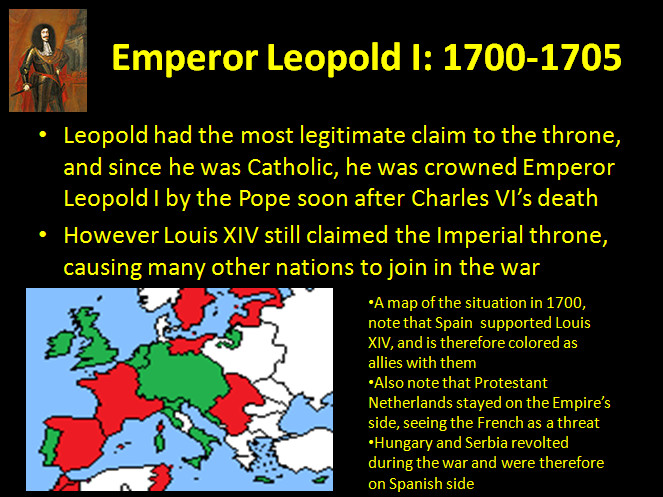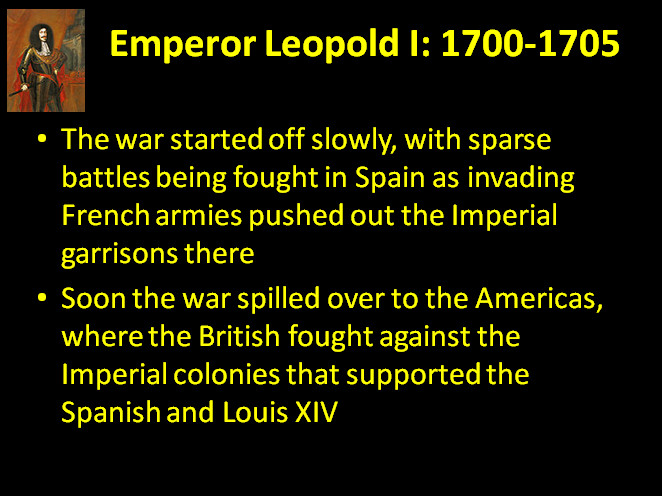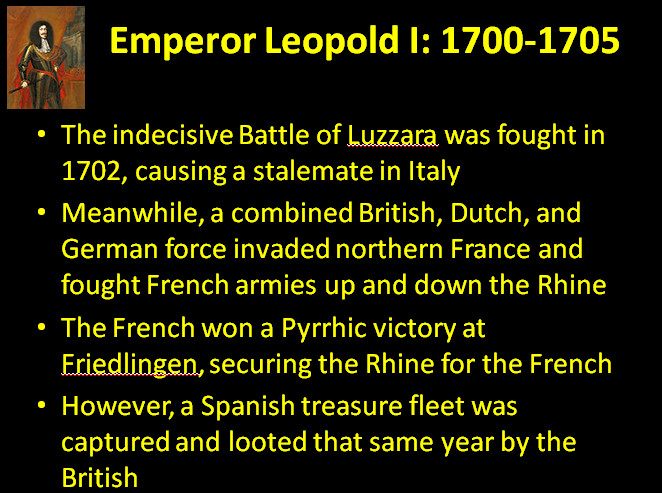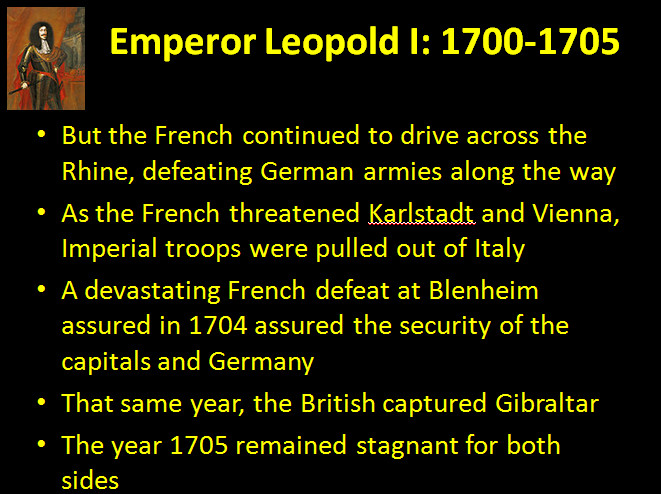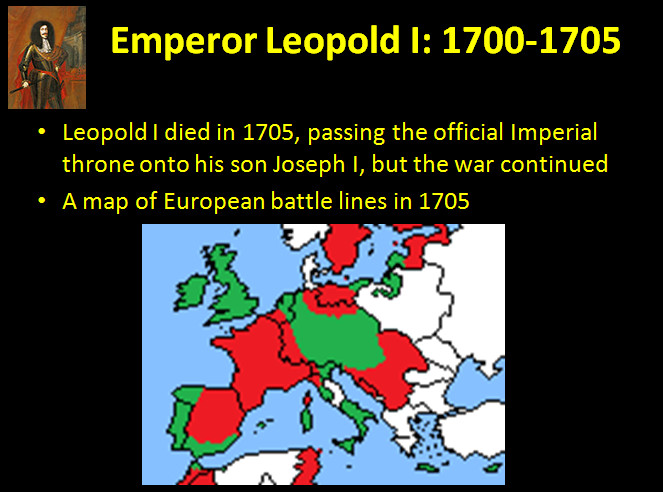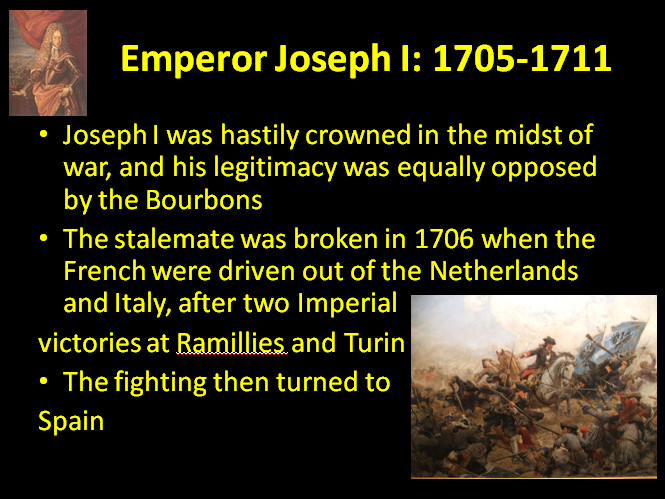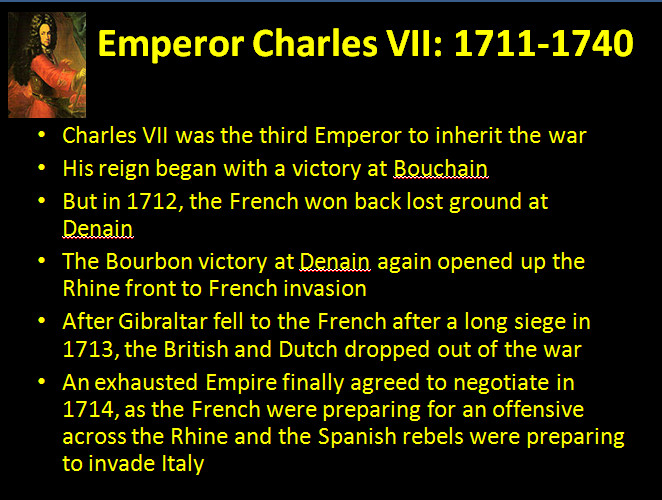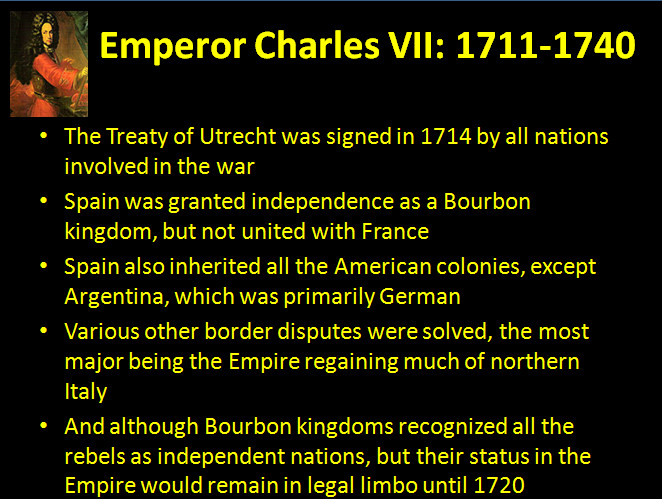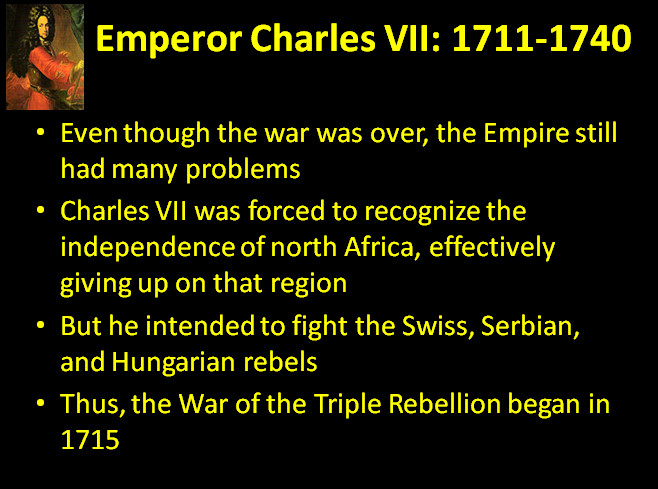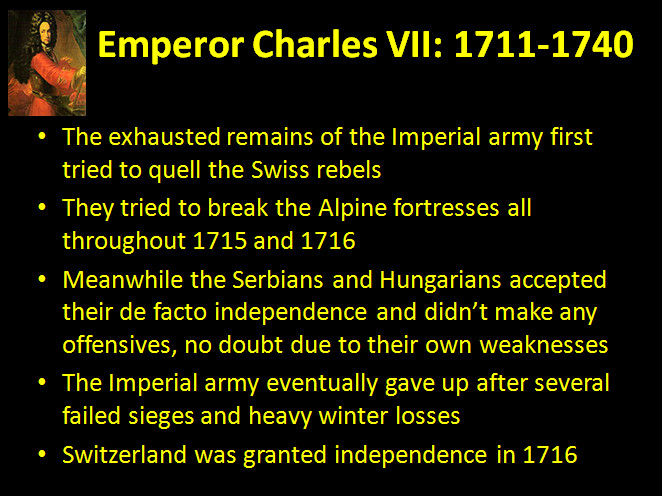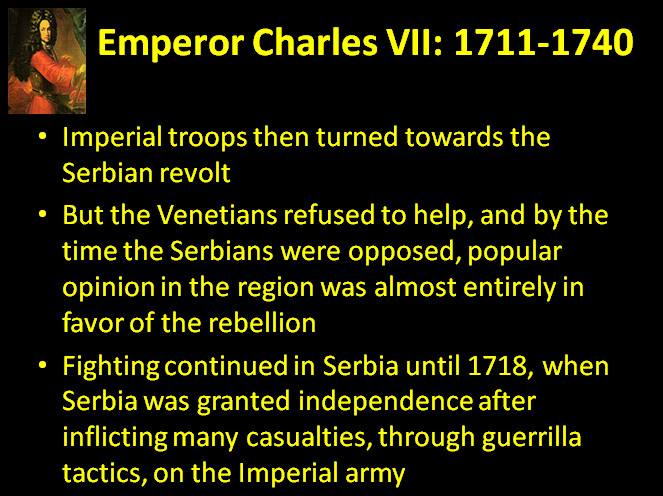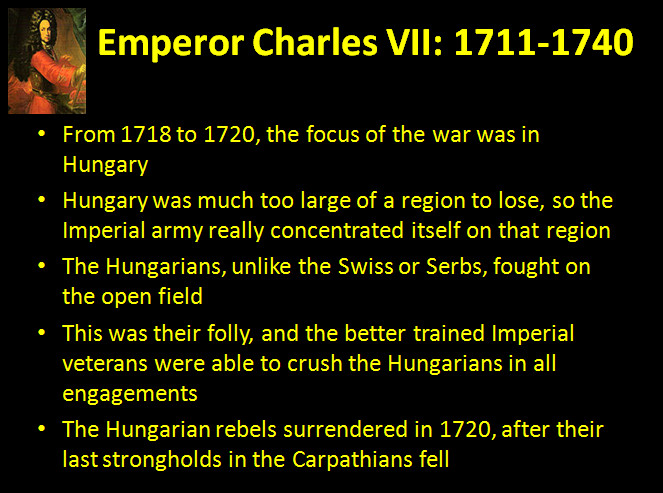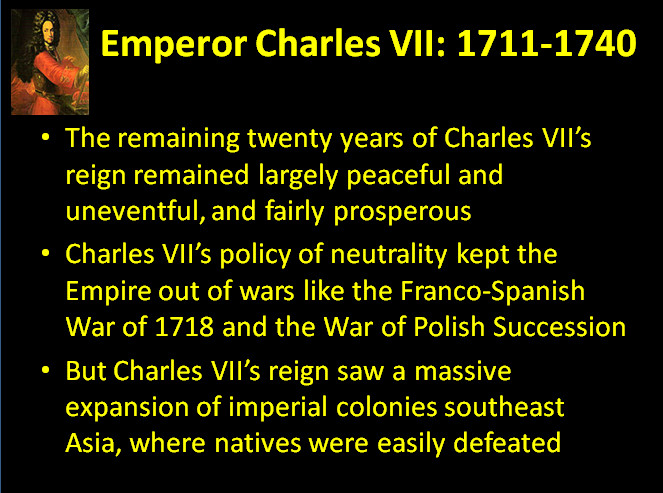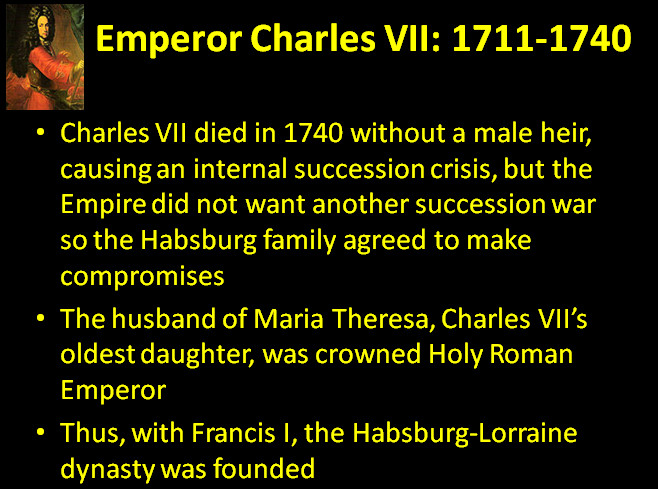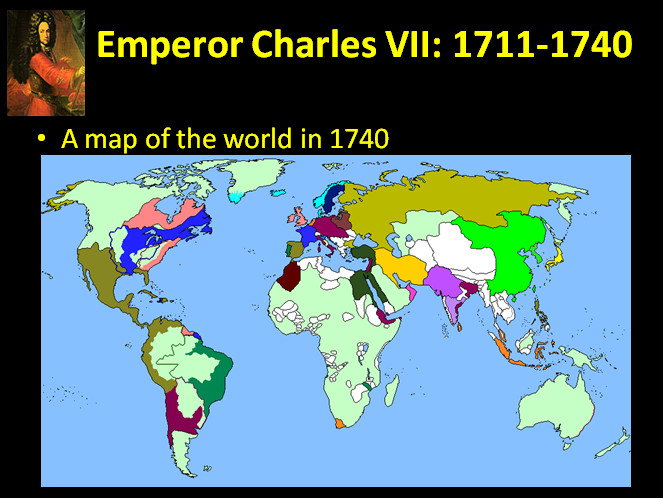Joseph I: 1705-1711
Alright everyone, welcome back to class. Today we are going to talk about the equally short reign of Joseph I, which was of course still dominated by the War of Imperial Succession.
Joseph I started his reign with a very risky move. He had himself swiftly transported to Rome, sometimes going through war zones. This way, he was finally crowned by the Pope, in an attempt to add legitimacy to his reign, especially amongst Catholic subjects. But the Protestant Bourbons, and even the Catholic Spanish, didn't heed the Pope's word and continued the war. The first year of Joseph I's reign was marked by a military stalemate on nearly all fronts. This stalemate wasn't broken until the Empire and its allies gained two significant victories at Ramillies and Turin. These two victories opened up the Italian and Rhine fronts, and allowed for significant Imperial gains.
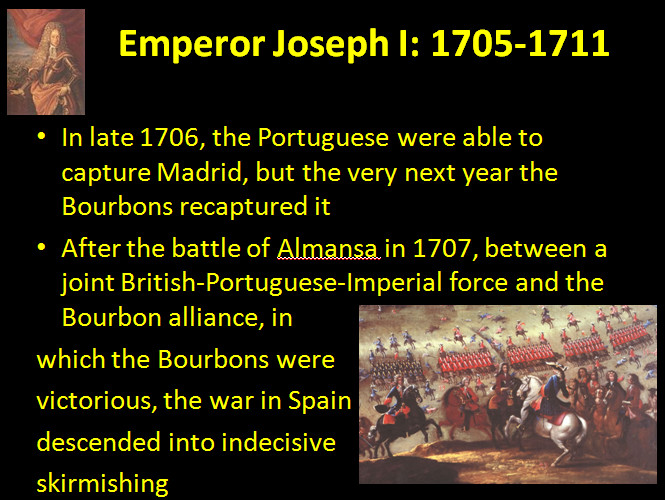
In the fall and winter of that same year, the Portuguese, who were allied with the Empire, rather miraculously captured the city of Madrid. However, their victory celebrations did not last long, as a Bourbon pretender force, of mostly Spanish rebel forces, was able to recapture the city in mid-1707. Also in 1707, the Bourbons were able to gain a bloody victory over an allied force. Since the battle was so destructive for both sides, the war in Spain descended into another stalemate.
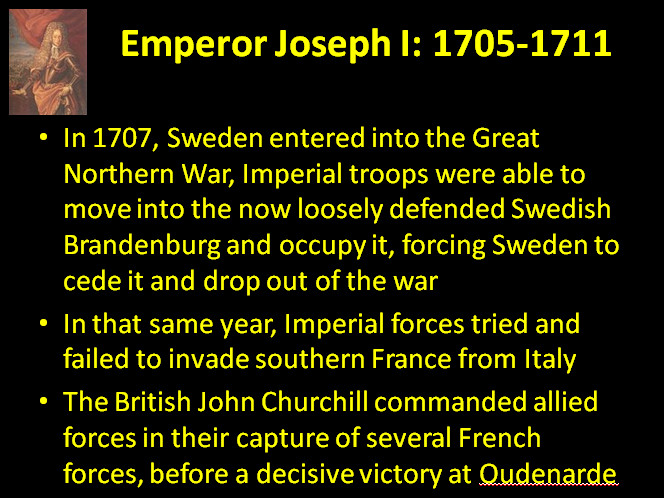
But the Empire received a major victory in 1707, when Sweden became involved in the Great Northern War with Russia. Since the Swedish were forced to move many of their troops out of Brandenburg, Imperial forces were able to recapture that territory rather bloodlessly and easily. By early 1708, the Swedish were forced to sign a peace treaty that ceded Brandenburg back to the Holy Roman Empire. Imperial forces tried to follow up this victory with an offensive in northern Italy, but this offensive, like so many others during the war, only led to a stalemate. But in 1708, the British general John Churchill, or Duke of Marlborough, led allied forces to a major victory over the French at Oudenarde. This victory pushed the French out of the Low Countries and opened up northern France for invasion.
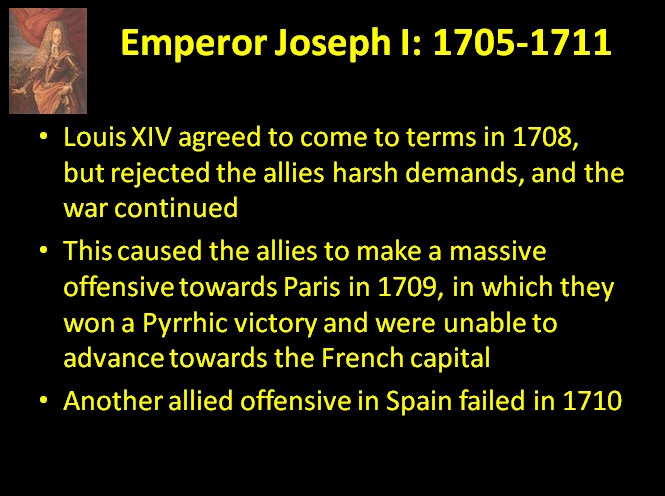
Since northern France was threatened, Louis XIV actually agreed to negotiate a peace in late 1708. But the allies demanded too harsh a peace for him to accept, so the war continued. The allies followed up the French king's rejection with an offensive aimed towards Paris itself. But the allies won a Pyrrhic victory at Reims in 1709, and their losses were so great they were forced to cease advancing. And, as usual, the allies failed in another Spanish offensive throughout 1710.
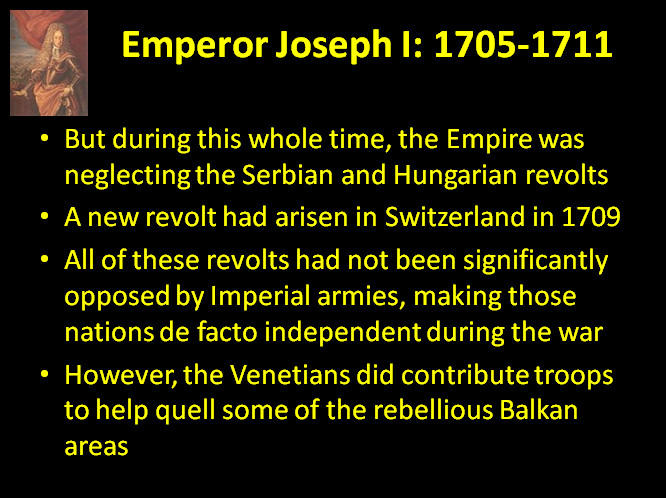
Now during this whole time, the Empire was also dealing with additional rebellions in Serbia and Hungary. And in 1709, another rebellion arose among the Swiss. The Empire however, was much too focused on other fronts to make major moves against these rebels. The only action along the Balkan front was to keep the rebels at bay, maintaining a rather stable frontline. And since the rebels weren't significantly opposed, except by occasional Venetian raids, they didn't make major offensives in return. So basically, Hungary and Serbia were independent during this time. Both Leopold I and Joseph I had felt that these areas could be ignored, and reintegrated into the Empire after the war, but their inaction would cause major problems in the future. However, can we really criticize these two emperors for their inaction? For if they had taken away troops from other fronts, perhaps the Bourbons would have advanced even further into Germany than they had during Leopold I's reign. So by effectively sacrificing the Balkans, Leopold I and Joseph I were in effect saving the German heartland.
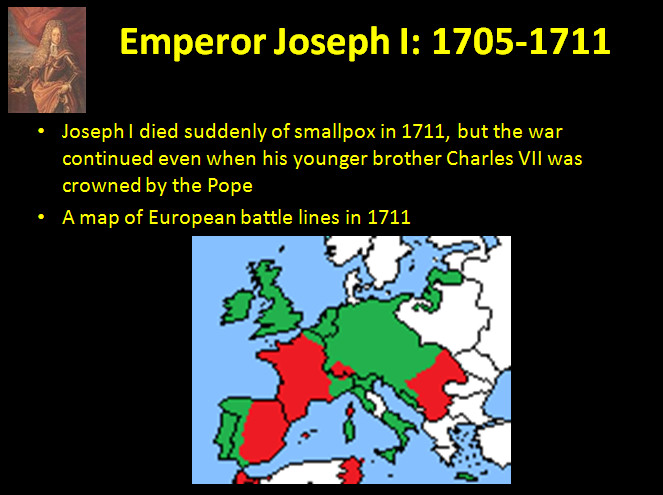
The young and ambitious Emperor Joseph I died of smallpox in 1711. His death sent shockwaves throughout Europe, as his successor Charles VII would become the third Holy Roman Emperor during one war, and to add shame, during a war that questioned imperial succession. Joseph I's death only added to the Bourbon's claims of unjust succession, and planted seeds of rebellion amongst the Imperial Italian territories. As you can see on the battle line map, Portuguese advances in Spain have been cut back, and Imperial north Africa has been overtaken by native rebels. The Swiss are also in rebellion, but just as the allies are making advances in northern France and Italy. The Venetians have pushed the Serbs and Hungarians back from the Adriatic coast, but their rebellions remain a largely bloodless front. Also, you may note that the Prussians have gained Livonia from Sweden, in the same peace deal they made with the Empire. Alright, that's it for today, tomorrow we'll talk about the reign of Charles VII, which finally lasted longer than a couple of years.


